Jeff Williams, Kevin Lynch, and Sumbul Desai executives talk about the Apple Watch's role in health, from humble beginnings as a step tracker to the important parts Apple may play in the future health research.
From November 2017 until July 2018, Apple Watch owners were given the opportunity to take part in a voluntary heart study that Apple was conducting.
The study was the largest arrhythmia study of all time, with nearly 420,000 participants. Not only would the study provide useful information health researchers, it would help solidify the Apple Watch as a serious health tool.
Jeff Williams, Kevin Lynch, and Sumbul Desai — Apple's Chief Operating Officer, Vice President of Technology, and Vice President of Health respectively — met with The Independent to talk about the Apple Watch's role in consumer health.
As it turns out, the original goal of the Apple Watch wasn't to put heart health at the front and center, and they certainly weren't expecting to save any lives. The original Apple Watch's heart rate monitor was designed solely to provide more accurate step tracking than other competitors on the market. However, this changed when Watch owners began writing to Apple.
"The first letter that we got about it saving somebody's life with just the heart rate monitor, we were surprised, because anybody can go watch the clock and get their heart rate. But then we started getting more and more and we realized we had a huge chance and maybe even an obligation to do more," explains Williams.
As it turns out, one of the reasons the Apple Watch is a successful tool for heart health is because of all its non-health features. Apple has designed a wearable that functions not only as a heart monitor, but also a cellphone, a wrist watch, a tool for reading emails and texts, and so much more. These features made the Apple Watch a best seller, not the heart monitoring.
"If you tried to sell a heart rate monitor to alert you to problems, you know, 12 people would buy it," Williams continues. "So, the people who are wearing it, we get the chance to in some ways ambush them with information about their health, which is what's allowed us to have such a big impact."
They go on to say that the medical community is excited that Apple has managed to pull off this sort of success. Watch wearers are able to take a more proactive role in their health. The Apple Watch, after all, has been credited with saving lives.
The research community is excited as well. As it turns out, Watch Wearers are excited to take part in research. One of the biggest difficulties in health research is getting a substantial amount of data from participants. The Apple Watch gives users who may not be able to participate in traditional studies the ability to contribute their data in a meaningful way.
"It really dates back to when we launched ResearchKit, very early on. It's basically some frameworks that allow people to build apps that can conduct studies with everybody who has a phone or watch. It took so much friction out of the research process that it was well-accepted early on." says Williams.
And, as it turns out, the current hardware is capable of doing quite a bit more.
"There's already so much that we can work on. It's really a matter of choosing our focus areas and asking really great questions that then lead to insightful answers. That's the journey we're on. The latest studies around hearing health, for example, women's health," says Kevin Lynch. Apple has recently brought Cycle— a menstrual tracking function of Apple Health — to Apple Health and Apple Watch. "There's so much to learn. There are so many areas that we could focus on. And so that's strategically the most important thing for us: asking where can we make a meaningful contribution?"
Williams ends the interview by discussing the importance of Apple as a player in health.
"Every day I come into Apple, I love the impact we've had on people with our products. But when I got the first couple letters saying, this saved my life', it's just a whole different feeling. That's my octane for the day," he says. "And when we've got hundreds of millions of phones in people's pockets and tens of millions of devices on people's wrists, plus trust from customers, well, this is an opportunity we can't squander."
 Amber Neely
Amber Neely

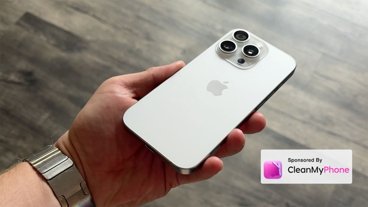

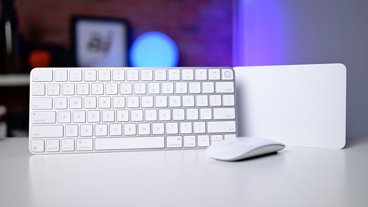









 Charles Martin
Charles Martin



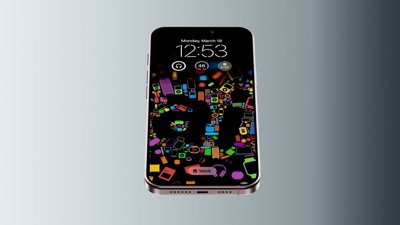
 Malcolm Owen
Malcolm Owen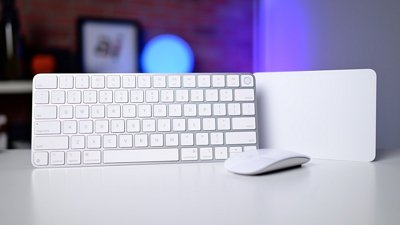
 Andrew O'Hara
Andrew O'Hara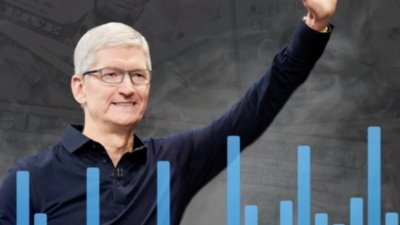



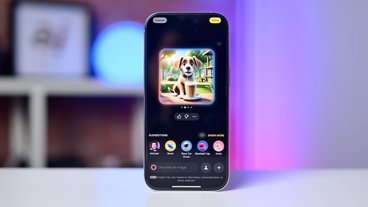


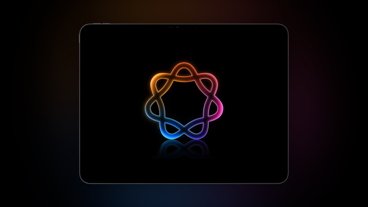

4 Comments
I mentioned my Watch to my cardiologist at my last appointment and wondered how accurate it might actually be. He responded that it is quite good for what it does. I now know what P waves and T waves are on those blips. B)
I think the biggest contribution Apple, the Apple Watch and the iPhone can make to health is in lifestyle medicine rather than explicit monitoring of heart anomalies.
Currently we spend $3.5Trillion a year (7 times the annual federal budget) on health care (or, more correctly: Disease Management) -- and roughly 80% of that goes to treat the effects of chronic diseases -- mostly brought on by unhealthy lifestyles. Essentially we not only killing ourselves but putting ourselves through years and decades of suffering prior to that death -- and driving ourselves into bankruptcy while we do it.
There is one answer and only one answer: A move to more healthy lifestyles: A healthy diet and daily exercise that will prevent the diseases that make us sick and the health industry rich.
But: WHAT exactly IS a healthy lifestyle?
Is it an Atkins type diet or one consisting of Grains and beans? Today, that research typically asks a person what they ate yesterday and then tracks them for the next 5 or 10 years waiting for them to die. Then, they publish the results and are told that their food questionaire was bullshit -- which it was. But, with an iPhone people can track and report what they eat meal by meal and snack by snack so researchers will have accurate and complete data for quality research.
Likewise, today the health industry recommends "150 minutes a week of 'exercise' " -- whatever that means! But with an Apple Watch researchers can see the type, duration, frequency and intensity of a person's exercise day by day over months, years and decades. And, using electronic health records know how that person has stayed healthy or gotten sick or died. And that becomes even more important as people age and sarcopenia, debility and fraility makes them dependent on society to function.
Today's health care industry is doing nothing more than mopping the floor without doing anything to turn off the tap of the overflowing sink.
But, iPhone and Apple Watch are capable of driving quality, economical research into the things that promote health rather than simply treating disease and could transform our DiseaseManagement system into a true HealthCare system.